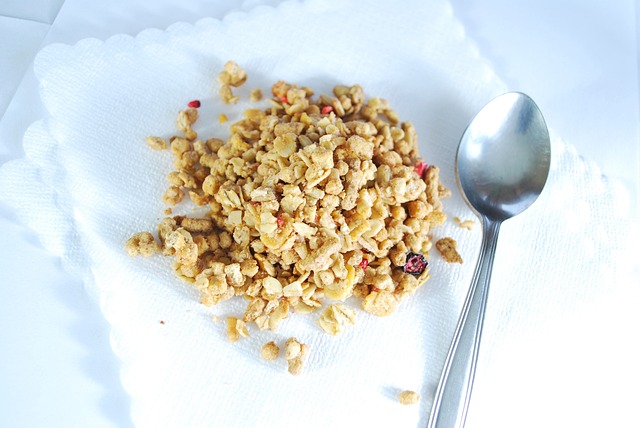With a treatment recommendation for obese women with polycystic ovary syndrome (PCOS) comprising lifestyle changes through dietary changes and physical activity, the investigators of this study evaluated the effects of a ketogenic diet among this patient population. .
As a first-stage non-pharmacological treatment for women with polycystic ovary syndrome (PCOS) who are classified as obese, the ketogenic diet, in particular caloric restriction, shows great promise as an adjuvant treatment alongside pharmacological therapy, note the findings of a new study in the International Journal of Environ Res Public Health .
Common comorbidities of PCOS are insulin resistance, dyslipidemia and obesity, the authors noted, which may increase the risk of diabetes and metabolic syndrome among women with the endocrine disorder .
This study included 17 women whose mean (SD) age was 28.5 (5.38) years (fertile age, according to the researchers) with PCOS and who were classified as obese (body mass index [BMI] > 25 ); all were enrolled in the University Medical Service of Dietetic and Metabolic Diseases of the Faculty of Medicine and Surgery of the University of Foggia, in Italy.
"In light of this evidence, the most therapeutic option prescribed to obese women with PCOS, regardless of the phenotype and severity of clinical expression, is lifestyle correction," they wrote. "This is the first study on the effects of the ketogenic diet on PCOS." This type of diet consists of increased fat intake, reduced carbohydrate intake, and an adequate amount of protein. For this study, daily intakes were set at 600 kcal for calories, 1.1 to 1.2 g of protein per kilogram of body weight, 30 g for carbohydrates, and 30 g for fat.
Following a 45-day dietary protocol, the results of the initial/baseline visit were compared with the results of the final/45-day visit for gynecological evaluation of oligo/amenorrhea status, nutritional status, body composition, biochemical measurements, and administration. of the diet. Baseline overall average total body weight was 81.5 (13.56) kg and baseline BMI, 31.84 (5.85) kg/m2.
Decreases were observed in all of the following measures:
Average weight: 9.4 kg (p <0.0001)
Mean BMI: 3.6 kg/m2 (p < 0.001)
Waist circumference: 9.4 cm (p <0.001)
Hip circumference: 8.1 cm (p < 0.001)
Fat mass: 7.90 kg (p <0.001)
Free fat mass: 1.41 kg (p <0.05)
Muscle mass: 1.32 kg (p <0.05)
Total body water: 1.32 kg (p < 0.01)
Basal metabolic rate: 67 kcal (p <0.001)
Improvements were also observed in several of the metabolic parameters (all P < 0.001):
Mean blood and urine ketone concentrations increased to 1.7 (0.58) mmol/L and 83 (54.34) mg/dL, respectively, from zero at baseline for both
Mean blood glucose decreased 10.07 mg/dL
Blood insulin fell 12.90 mcU/mL
Blood C-peptide concentration decreased by 0.87 ng/ml
Triglycerides were 70 mg/dL
Total cholesterol was reduced by 40 mg/dL
LDL cholesterol reduced by 35 mg/dL
HDL cholesterol increased 15 md/dL
For endocrine parameters, these changes were observed:
Luteinizing hormone (LH) decreased 4.6 mIU/ml (p < 0.001)
Free and total testosterone decreased 0.17 and 7.34 ng/dl, respectively (p < 0.001)
The LH/follicle stimulating hormone (FSH) ratio decreased to 1.32, from 2.72 at baseline (p < 0.01)
FSH value increased by 1.46 mIU/ml (p < 0.05)
Sex hormone-binding globulins 12.43 nmol/L (p < 0.001)
Positive correlations were observed between LH/FSH and weight, BMI and fat mass
Negative correlations were observed between LH/FSH and weight, BMI and fat mass
Positive correlations were observed between blood glucose and LH and FSH.
Negative correlations were observed between LH/FSH and glycemia
Additionally, regular menstrual cycles reappeared in 5 patients, "after years of amenorrhea," the authors noted, while regular menstrual cycles were reestablished in the other 12 patients, 5 of whom became pregnant naturally.
"The results attest that mixed dietary ketogenic medical intervention, by reducing the amount of carbohydrates and inducing therapeutic ketosis, acts favorably and effectively in the management of PCOS," they wrote. “These data are very interesting and showed that this pathology is a multifactorial disease influenced by lifestyle.”
The authors further concluded that their results are affected by the fact that their ketogenic diet intervention achieved such positive results in such a short period and that this was observed without the addition of foods intended to induce weight loss. And while they recommend a ketogenic diet as an adjunctive treatment to drug therapy for PCOS, they do suggest that additional studies are needed into the mechanisms driving the benefits of this diet.
Conclusions The ketogenic diet has a positive effect on the outcome of PCOS. The positive effects obtained in a very short period represent a strength of our study. Furthermore, the ketogenic diet is capable of inducing therapeutic ketonemia based on caloric restriction, using only foods. In this dietary protocol, only calorie restriction is used and not the help of functional foods that can induce weight loss. The use of calorie restriction in a short period represents a strength of this ketogenic diet protocol capable of inducing improvements in PCOS outcome. This dietary intervention can improve the anthropometric and metabolic profile of these subjects. The ketogenic diet and its beneficial effects can be used as an adjuvant to pharmacological therapy for PCOS, in addition, in the first stage of this disease, the ketogenic diet can be useful as a non-pharmacological therapy, however, more studies are needed to clarify the Molecular mechanism of the beneficial effects of the ketogenic diet. |
















